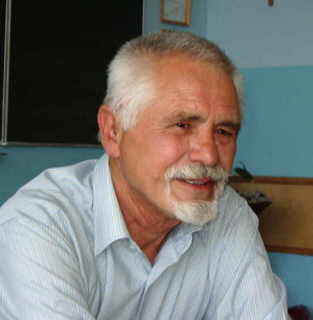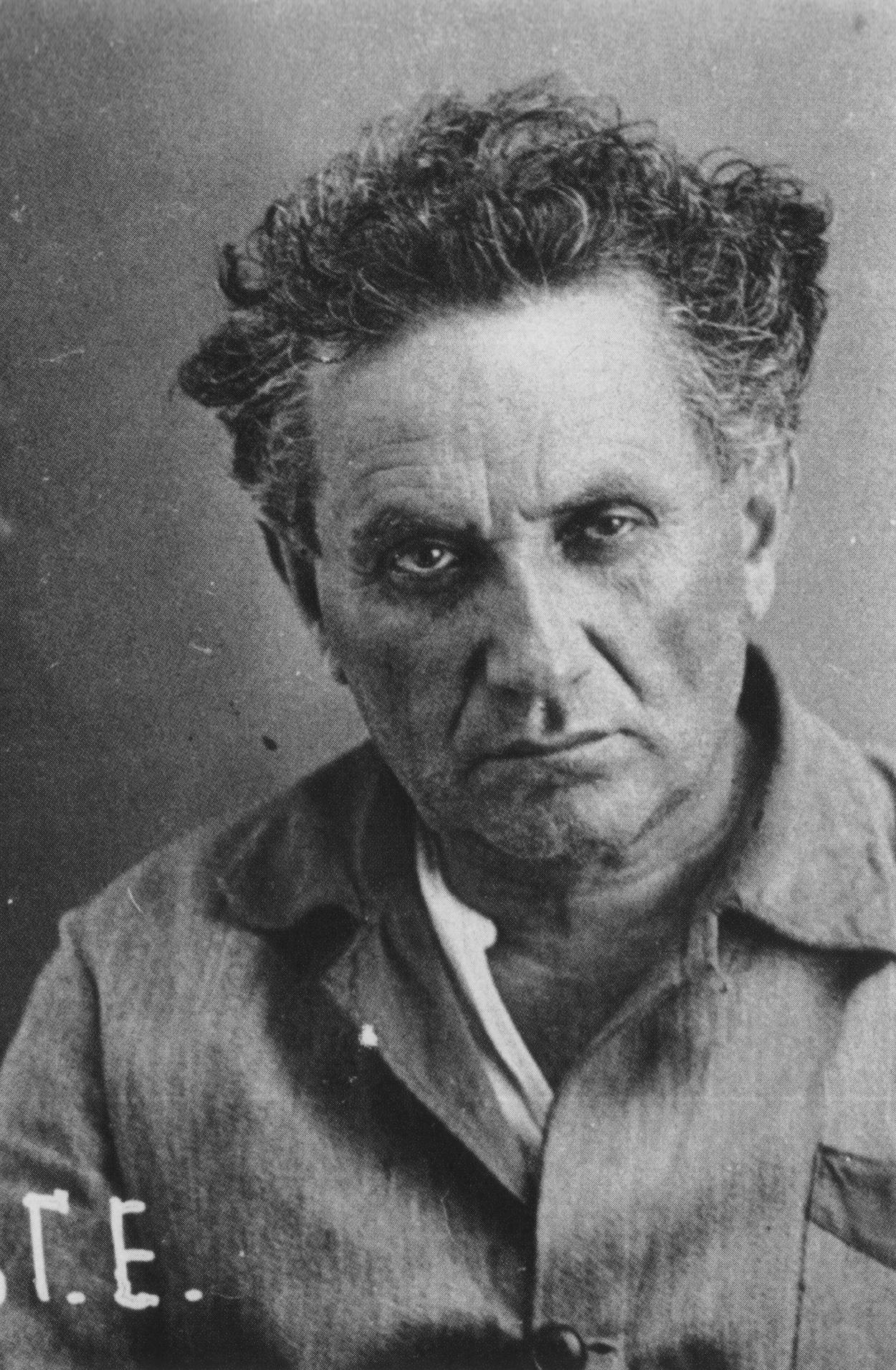
 O kryzysach humanitarnych i kryzysie humanistycznym
O kryzysach humanitarnych i kryzysie humanistycznym
Andrzej Koraszewski
 Bojówkarze Huti w 2015 r. mieli jeszcze prymitywną broń i nie byli umundurowani. Dziś wyglądają bardziej atrakcyjnie i trudno sobie wyobrazić, żeby byli terrorystami – https://twitter.com/i/status/1324417310568960001 (Zdjęcie Wikimedia Commons)
Bojówkarze Huti w 2015 r. mieli jeszcze prymitywną broń i nie byli umundurowani. Dziś wyglądają bardziej atrakcyjnie i trudno sobie wyobrazić, żeby byli terrorystami – https://twitter.com/i/status/1324417310568960001 (Zdjęcie Wikimedia Commons)
Richard Landes i Mark Pickles napisali obszerną analizę ludobójczego antyizraelizmu. Poczynając od zamiany przez Iran Libanu w antyizraelską bazę terrorystyczną ze 150 tysiącami rakiet rozmieszczonych na gęsto zaludnionych terenach południowego Libanu, a kończąc na zamianie Organizacji Narodów Zjednoczonych w antyizraelską szczujnię zdominowaną przez kraje bandyckie wspierane przez zachodnie demokracje.
Znakomita analiza, którą postanowiliśmy udostępnić polskim czytelnikom, a nawet za kilka złotych wypromować na Facebooku, żeby ten tekst dotarł do szerszego kręgu. Moja reklama została odrzucona z następującą informacją:
Reklama mogła zostać odrzucona, jeśli dotyczy polityków lub ważnych kwestii społecznych mogących wpłynąć na opinię publiczną, sposób głosowania oraz rezultat wyborów albo na proponowane rozwiązania prawne.
Trudno o wątpliwości, że tego rodzaju analizy mogą wpłynąć na opinię publiczną, chociaż zapewne w niewielkim stopniu. Rozumiem jednak głęboką troskę. Dla sprawdzenia, czy jest to systemowe działanie natychmiast przelałem pieniądza za tę reklamę na artykuł mieszkającego w Izraelu palestyńskiego dziennikarza Khaleda Abu Toameha pod tytułem Palestyńczycy: Nie dla normalizacji z „syjonistycznym tworem”. Ta reklama została również odrzucona. Ciekawe.
Znakomity amerykański historyk Richard Landes i brytyjski chrześcijański publicysta Mark Pickles piszą:
Przy kosztach w odebranym życiu ludzkim (setki tysięcy rocznie, głównie muzułmanie) można się zastanawiać, dlaczego tak wielu chce popierać palestyńskie organizacje, które jawnie dążą do unicestwienia maleńkiego kraju, który jest domem dla połowy Żydów świata (i grubo ponad miliona Arabów) i używają samobójczego terroru, by do tego doprowadzić. Ta apokaliptyczna ideologia, która marzy o eksterminacji Żydów jako pierwszym etapie w morderczym podboju świata, przenika nie tylko dżihadystyczne organizacje, takie jak Hamas, Hezbollah, Al-Kaida i ISIS, ale części świata muzułmańskiego, często charakteryzowanego przez mędrców telewizyjnych Zachodu jako „umiarkowani”. W rzeczywistości obecnie #GenerationCaliphate jest największym apokaliptycznym ruchem milenijnym na planecie, ale ewidentnie większość ludzi na Zachodzie niewiele o tym wie.
Autorzy przypominają historię islamizmu, jego związki z europejskim nazizmem, kluczowe prace głównego ideologa Bractwa Muzułmańskiego, Sajjida Kutba Nasze walki z Żydami (1950) oraz wydane na dwa lata przed jego śmiercią Kamienie milowe. W tej drugiej książce Kutb naszkicował terminarz zamienienia całego świata w Państwo Islamskie, a proces ten miał zacząć się od krajów muzułmańskich, które wszystkie, zdaniem Kutba, popadły w dżahilijję, czyli pogańską ciemność i ignorancję, odchodząc od „czystego” islamu. Ten proces używania rewolucyjnych i politycznych środków do doprowadzenia muzułmanów „z powrotem” do „czystego” islamu, tym samym zdobywając świat dla swojego państwa Boga skoncentrowanego na Jerozolimie (czyli „Al-Kuds”), Bractwo Muzułmańskie nazwało „islamizmem”.
Mimo arabsko-irańskiego antagonizmu książki Kutba są przełożone na farsi i są podstawą ideologiczną islamskiej rewolucji w Iranie. Konflikt między islamem sunnickim i szyickim jest krwawy, ale w pewnym sensie pozorny. Jest to konflikt o to, kto bardziej nienawidzi Żydów i kto ma przewodzić w walce o podporządkowanie świata islamizmowi. (Iran i Turcja mogą się sprzymierzyć przeciw Zachodowi, ale równie dobrze może dojść do zbrojnego konfliktu między nimi).
Czy rzeczywiście mamy do czynienia z ludobójczym antyizraelizmem? Landes i Pickles piszą:
Haras Rafiq, czołowy brytyjski ekspert muzułmański w sprawach zapobiegania terroryzmowi, wygłosił w czerwcu 2019 roku wykład na Oxford University, wyjaśniając, że celem islamizmu jest „narzucenie własnej wersji Fiqh [jurysprudencji], która pochodzi z szariatu… jako prawa państwowego dla wszystkich [nie tylko muzułmanów] na Ziemi”. Powiedział, że metafizycznym warunkiem wstępnym dla spełnienia tego celu jest „wymazanie Izraela z mapy” przez ludobójstwo popełnione na Żydach. Unicestwienie Izraela i Żydów jest podstawą islamizmu, a jego uczeni wyznawcy i przywódcy polityczni – włącznie z prezydentami, premierami i szejkami niektórych krajów muzułmańskich – tego nie kryją.
Jak bardzo ludobójczy jest islamizm? Islamskie Państwo Iraku i Syrii (ISIS) przez kilka lat dawało światu lekcję bezmiaru barbarzyństwa islamskiego fanatyzmu. Trwające ludobójstwo chrześcijan w Afryce i na Bliskim Wschodzie nie trafia na pierwsze strony zachodnich gazet, (być może dlatego, że niektórzy wyobrażają sobie, że chrześcijaństwo dotarło tam wraz z europejskimi kolonialistami, nie domyślając się tego, że tam się zaczęło).
Pochodzący z rodziny koptyjskich imigrantów z Egiptu amerykański badacz Raymond Ibrahim od lat dokumentuje prześladowania chrześcijan w krajach islamu. Na Bliskim Wschodzie populacja chrześcijan spadła z 20 do 4 procent. Z krajów takich jak Pakistan czy Nigeria niemal każdego tygodnia napływają doniesienia o spalonych wsiach, mordach, porwaniach kobiet, przymusowych konwersjach, podpaleniach kościołów, oskarżeniach o bluźnierstwo, prowadzących nierzadko do wyroków śmierci.
Jak się wydaje ludobójczy islamizm największe żniwo śmierci zbiera wśród samych muzułmanów. Szóstego lutego inny badacz amerykański, Majid Rafizadeh (pochodzący z rodziny imigrantów z Iranu) opublikował artykuł o polityce Iranu w Jemenie. Pisał w nim o długiej historii dostarczania broni dla szyickiej milicji Huti, o strategicznym znaczeniu tego kraju, ze względu na możliwości atakowania państw Zatoki i dalszej ekspansji na Afrykę. Rafizadeh przypomina atak na największą na świecie rafinerię ropy naftowej w Arabii Saudyjskiej, po którym rządowa gazeta „Kayhan” pisała: Huti wystrzelili pociski na Rijad, Dubaj będzie następny.
Dysponujące coraz nowocześniejszą bronią oddziały Huti całkowicie świadomie zmierzają do maksymalnej ilości ofiar cywilnych. Ataki na cywilne lotniska, na tankowce i inne cywilne obiekty mają na celu niszczenie infrastruktury, destabilizację i sterroryzowanie przeciwnika. Rafizadeh zaledwie wspomina o sprawie rzekomego ostrzelania elektrowni atomowej w Zjednoczonych Emiratach Arabskich. Szukając jakiegoś potwierdzenia tej informacji dotarłem do artykułu w „New York Times” z 3 grudnia 2017 roku, którego tytuł informuje, że Emiraty czemuś zaprzeczają. Jak się okazuje witryna internetowa Huti opublikowała oświadczenie, że skutecznie ostrzelała rakietami elektrownię nuklearną. Władze Zjednoczonych Emiratów Arabskich istotnie zdementowały tę informację. Czyli zostajemy z wiedzą, że fanatycy Huti zrobiliby to bez chwili wahania, gdyby tylko mogli, że być może nawet coś próbowali, tylko nie wyszło.
Istotne jest tu to, co wiemy od dawna, dla fanatyków życie ludzkie nie ma najmniejszego znaczenia.
W tym samym dniu, w którym ukazał się artykuł Rafizadeha o irańskiej polityce w Jemenie, „New York Times” poinformował, że amerykański Departament Stanu zapowiedział zdjęcie milicji Huti z listy organizacji terrorystycznych. Artykuł dwójki autorów, Lary Jakes i Erica Schmitta informuje, że 80 procent populacji Jemenu (około 24 miliony) żyje na obszarach kontrolowanych przez Huti i według Organizacji Narodów Zjednoczonych ludzie ci są zagrożeni „największym głodem od dziesięcioleci”. Według senatora Christophera S. Murphy’ego zdjęcie milicji Huti z listy organizacji terrorystycznych będzie ratować życie. Jak twierdzi ten polityk:
Desygnowanie Huti nie dotknęło Huti w żaden sposób, ale uniemożliwiło dostarczanie żywności i innej praktycznej pomocy na terenie Jemenu i utrudniło skuteczne polityczne negocjacje”.
Znając praktyki Talibów, Al-Kaidy, ISIS, Hezbollahu, Hamasu, islamiści zawsze dają pozwolenia na dostarczanie pomocy wyłącznie na swoich warunkach, a skuteczne pokojowe negocjacje z tymi organizacjami to raczej opowieści o żelaznym wilku. Autorzy artykułu w NYT przyznają, że Huti znajdowali się na liście organizacji terrorystycznych zaledwie przez miesiąc i dodają, że nie jest jasne, czy mogło to tę organizację jakoś zatrzymać, a najważniejsze, że nie zagraża ona w żaden sposób Ameryce.
Rebelianci, czytamy dalej w tym artykule, kontrolują stolicę Jemenu Sanę, która jest głównym punktem dostarczania pomocy z całego świata.
Autorzy piszą, że rebelianci Huti są najemnikami Iranu i są przez Iran zaopatrywani, ale ta pomoc mimo narzuconych przez Trumpa sankcji, nadal trwała.
Jako część kampanii presji na Iran administracja Trumpa chciała ograniczyć militarne wpływy Teheranu w Jemenie, gdzie wysyłano broń i inną pomoc dla bojowników Huti. Uderzenie pana Trumpa w rebeliantów plasuje Stany Zjednoczone w wojnie w Jemenie po stronie Arabii Saudyjskiej i jej sojuszników, dostarczając im, mimo zastrzeżeń Kongresu, danych wywiadowczych i miliardów dolarów.
Autorzy przypominają, że prezydent Biden zapowiedział zakończenie poparcia dla Arabii Saudyjskiej.
Administracja prezydenta Bidena wszczęła już kroki w celu ponownego przystąpienia do tzw. umowy nuklearnej z Iranem. Czy to też z myślą o pokoju i zapobieganiu kryzysom humanitarnym? Grupa irańskich dysydentów ryzykując wolność, a nawet swoje życie wyraziła na ten temat inną opinię.
Pierwszego lutego 38 mieszkających w Iranie dysydentów przesłało „List otwarty do Prezydenta Stanów Zjednoczonych Joego Bidena”, prosząc go o zachowanie „maksymalnego nacisku” na Iran. W zakończeniu tego listu czytamy m.in.:
Wydarzenia w Iranie w połączeniu z podpisaniem Porozumień Abrahamowych sygnalizują geopolityczne zmiany na Bliskim Wschodzie. Rzeczywiście Islamska Republika Iranu doświadcza spadku wpływów w Syrii, Libanie, Iraku i na całym obszarze Bliskiego Wschodu. W efekcie obecnej rzeczywistości teokratyczna Islamska Republika Iranu znajduje się na skraju załamania.
Panie Prezydencie, głęboko wierzymy, że nowa polityczna rzeczywistość w Iranie i na Bliskim Wschodzie daje irańskiemu narodowi historyczną okazję osiągnięcia pokoju i przejścia do świeckiej demokracji. Dlatego też z wyrazami szacunku prosimy, aby Pana administracja w ustalaniu polityki wobec Iranu wzięła pod uwagę następujące:
· Uznanie wyższości aspiracji większości irańskiego narodu i świeckiej demokratycznej konstytucji nad sprawą przetrwania teokratycznej Islamskiej Republiki.
· Zachowanie maksymalnej politycznej, dyplomatycznej i finansowej presji na reżim irański.
· Obronę praw człowieka w Iranie i zwolnienie wszystkich więźniów politycznych i osób więzionych za swoje przekonania.
· Poparcie irańskiej determinacji w dążeniu do świeckiego demokratycznego rządu poprzez pokojowe, wolne i sprawiedliwe referendum.
Jako były działacz Amnesty International (w czasach, kiedy ta organizacja zajmowała się wyłącznie więźniami sumienia), czytając ten napisany i wysłany z narażeniem życia list, byłem przekonany, że nie mógł być zignorowany przez tę organizację, ani przez Human Rights Watch. Mógł i został zignorowany. Być może w tym przypadku jeszcze ważniejsze są reakcje (a raczej ich brak) ze strony amerykańskich mediów. W chwili, gdy to piszę list został odnotowany przez Voice of America i „Newsweek”. Milczą „New York Times”, „Washington Post”, NBC, CNN i praktycznie wszystkie wielkie redakcje. Milczy również BBC. (Nie dziwi milczenie „Gazety Wyborczej”, chociaż mnie osobiście uwiera to równie mocno, jak milczenie Amnesty International).
Obawiam się, że decyzja o zdjęciu islamistów Huti z listy organizacji terrorystycznych nie ma wiele wspólnego z troską o kryzys humanitarny w Jemenie. Może mieć bardzo wiele wspólnego z kryzysem humanizmu.
Podobnie jak Kościół katolicki rości sobie pretensje do monopolu na miłość bliźniego i dobroczynność, tak dzisiejsza lewica domaga się monopolu na wartości humanistyczne. Lewica ma ogromne zasługi w walce o prawa pracowników najemnych, równość praw, prawa kobiet. Wartości humanizmu są jednak wartościami ludzkimi i próba ich zmonopolizowania przez lewicę aż nazbyt często była i nadal jest nie tylko uzurpacją, ale i zasłoną dymną ukrywająca znacznie mniej szlachetne cele.
Tak niedawno byliśmy świadkami kryzysu humanitarnego Jazydów, od lat jesteśmy świadkami kryzysu humanitarnego Syryjczyków, o trwającym kryzysie humanitarnym Palestyńczyków w krajach arabskich nie znajdujemy żadnych wzmianek w mediach głównego nurtu.
Sygnatariuszka listu irańskich dysydentów (żeby było ciekawiej, nauczycielka religii), Fatemeh Sepehri, w wywiadzie dla mieszkającej na Zachodzie Iranki Masih Alinejad mówiła, że sankcje nigdy nie są kierowane na produkcję czy dostarczanie żywności i leków, że dyktatorzy zawsze zasłaniają się sankcjami, pieniądze zużywają na inne cele, a ludzie zostają w biedzie.
Kryzys humanitarny w Jemenie jest faktem. Podobny kryzys był faktem po przejęciu władzy przez komunistów w Etiopii, podobny kryzys jest faktem w Wenezueli. Fanatycy (często jak niegdyś w Biafrze) całkowicie świadomie i celowo, czasem w głębokim przekonaniu, że mają świetne pomysły, tworzyli klęski głodu w przeszłości i robią to nadal.
Kiedy nowego sekretarza stanu USA, Antony’ego Blinkena, zapytano podczas przesłuchania w Senacie 19 stycznia 2021 o egzekucje ludzi w Iranie – coś, co popiera minister spraw zagranicznych Iranu, Dżavad Zarif — Blinken odpowiedział, że Stany Zjednoczone będą w „znacznie lepszej pozycji”, by zająć się takimi sprawami, jeśli dadzą priorytet powstrzymaniu Iranu przed możliwym zdobyciem broni nuklearnej w niedalekiej przyszłości.
Czy jest to tylko wątpliwa ocena rzeczywistości, czy też mamy do czynienia z poważniejszym kryzysem wartości niż nam się zdaje? Dodatkowe wątpliwości wzbudziła we mnie lektura obszernego artykułu w magazynie „Time”. Nie wiem, czy komukolwiek będzie się chciało odtworzyć ten link: https://time.com/5936036/secret-2020-election-campaign/, dla mnie był to jeden z najbardziej zdumiewających tekstów, jakie czytałem w ostatnich tygodniach.
 Andrzej Koraszewski
Andrzej Koraszewski
Publicysta i pisarz ekonomiczno-społeczny
Ur. 26 marca 1940 w Szymbarku, były dziennikarz BBC, wiceszef polskiej sekcji BBC, i publicysta paryskiej „Kultury”.
Zawartość publikowanych artykułów i materiałów nie reprezentuje poglądów ani opinii Reunion’68,
ani też webmastera Blogu Reunion’68, chyba ze jest to wyraźnie zaznaczone.
Twoje uwagi, linki, własne artykuły lub wiadomości prześlij na adres:
webmaster@reunion68.com




 Hebrew University of Jerusalem
Hebrew University of Jerusalem